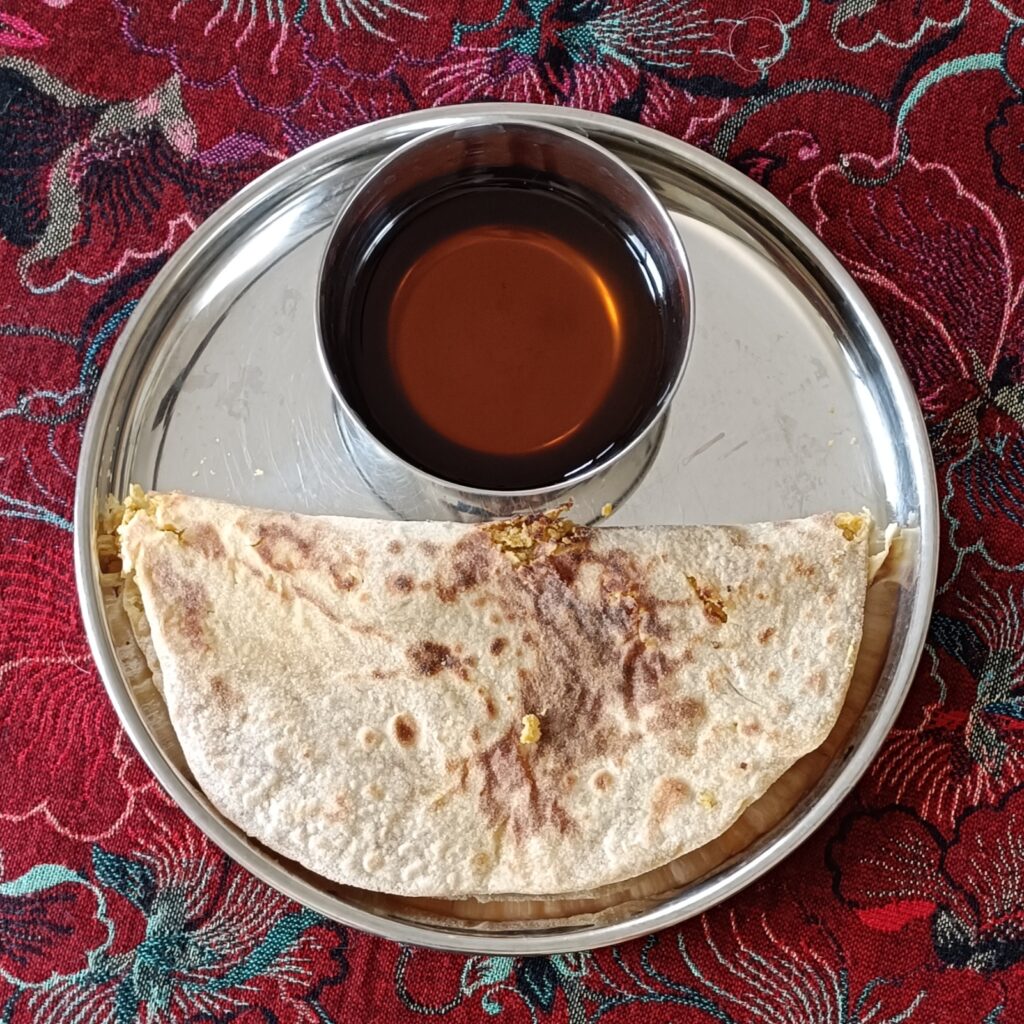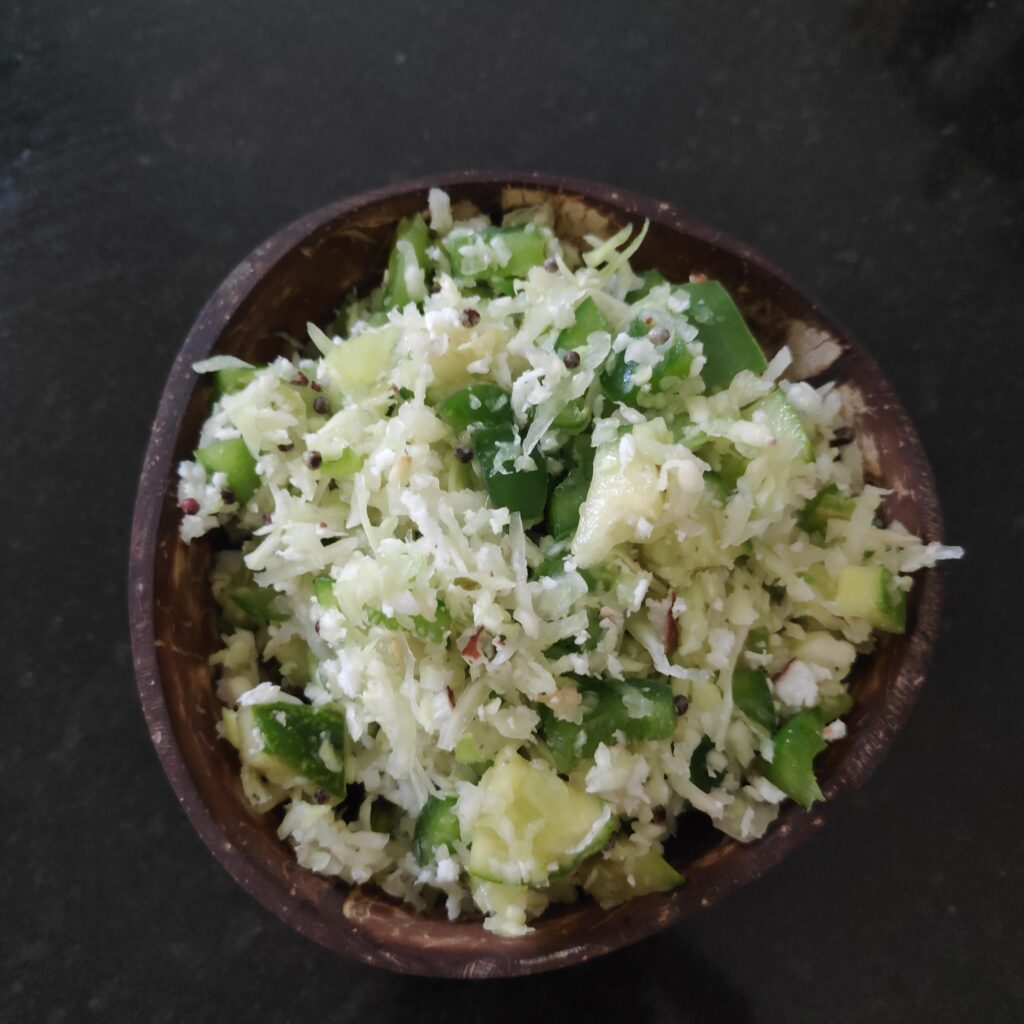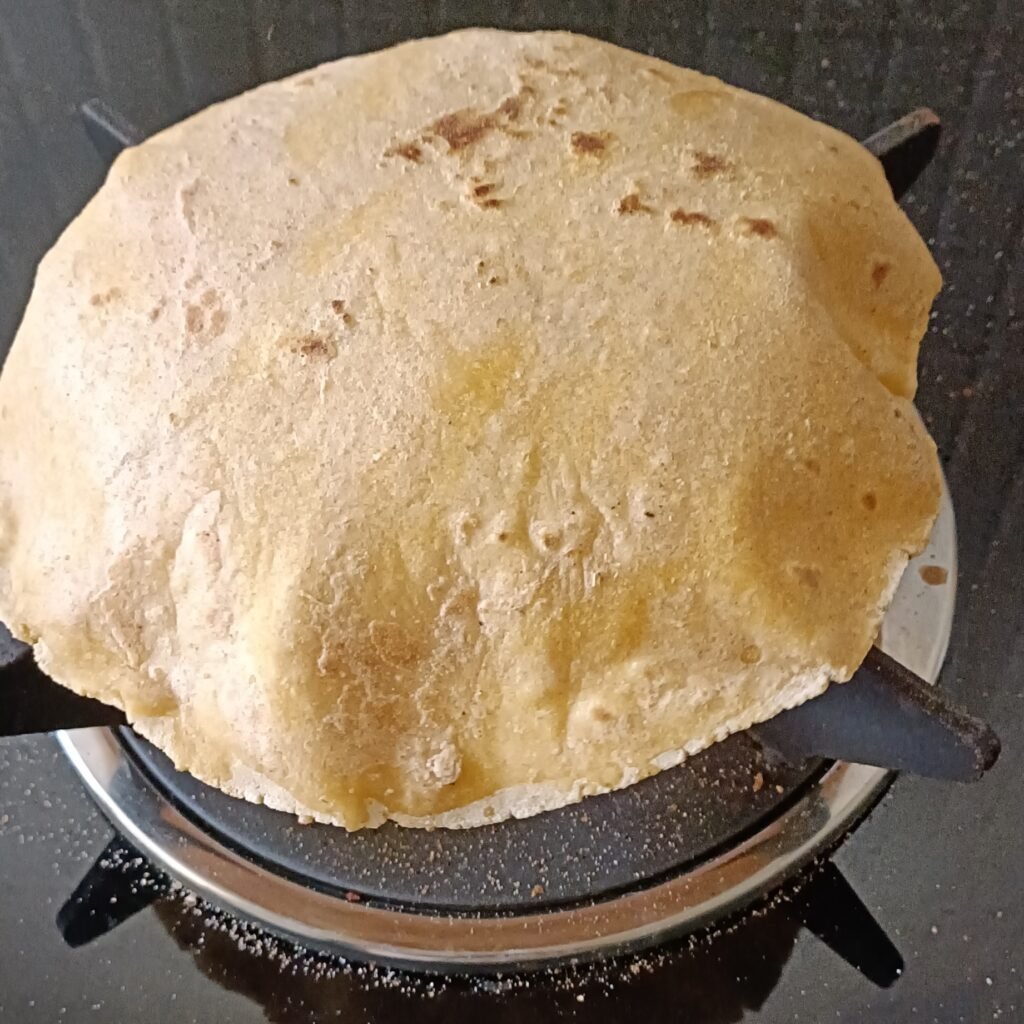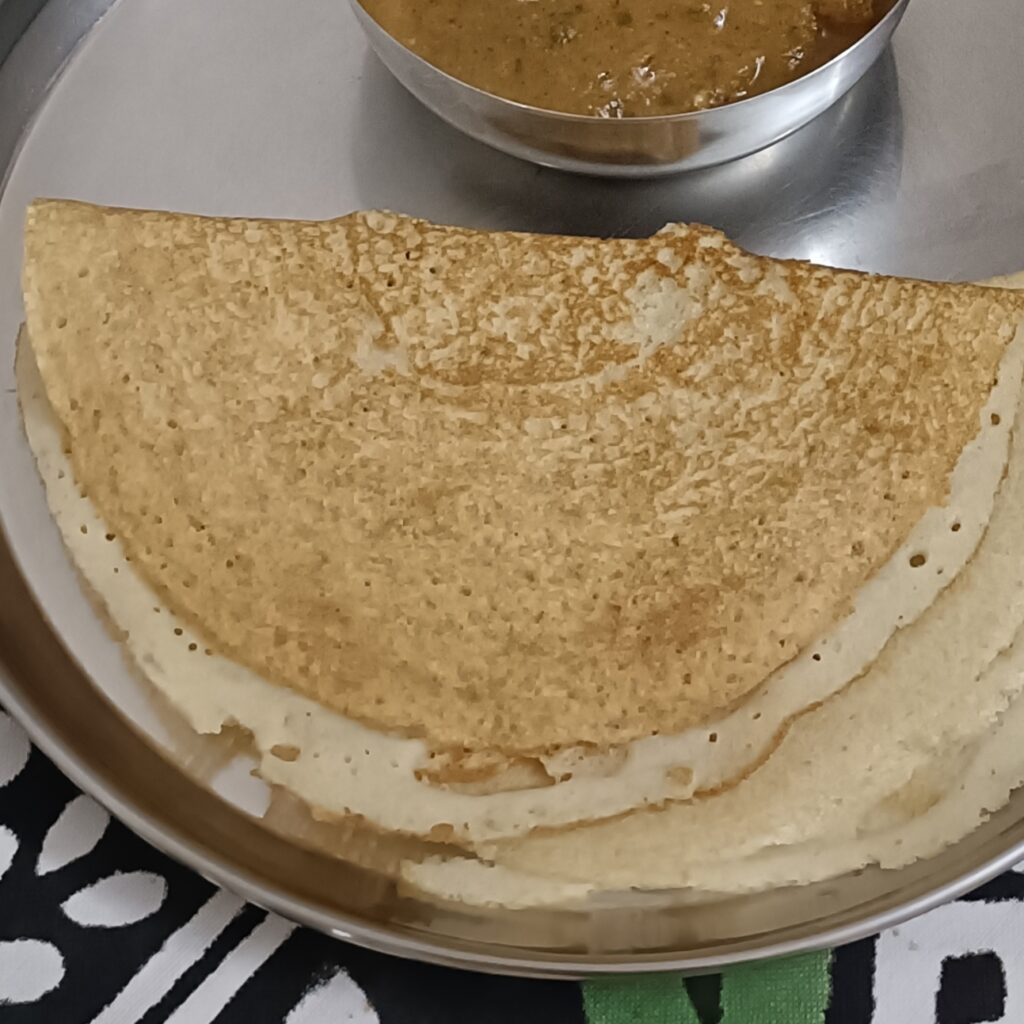
Puran Poli with Gulawni or Coconut Kheer
Chana dal, or split chickpeas, is a nutritious legume rich in protein, fiber, and essential minerals, and has been used traditionally for generations. It has several health benefits as per every 100 grams, it includes around 360-400 calories, 20-22 grams of protein, which is an excellent source for muscle repair and growth, 60-65 grams of carbohydrates, and 10-12 grams of fibre, which promotes healthy digestion and can help prevent constipation. It has only 2-4 grams of fat so supports heart health. It also contains several vitamins like B vitamins (B6, folate, niacin, thiamin, riboflavin) and minerals like iron, phosphorus, magnesium, manganese, and copper. These are good for a healthy skin.






